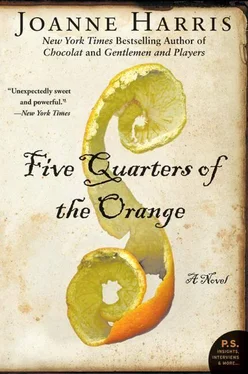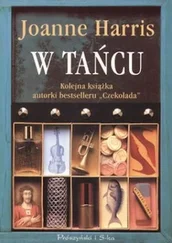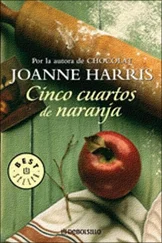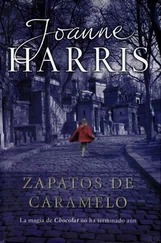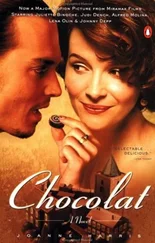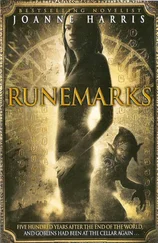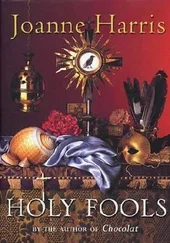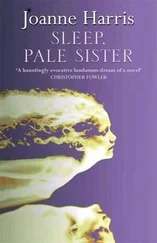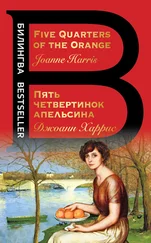I have taken to creaming my hands and face before I go to bed at night, and the other day I brought out an old lipstick-cracked and clotted with disuse-and blotted a little of the color onto my lips before rubbing it off in guilty confusion. What am I doing? And why? At sixty-four, surely I’ve passed the age at which I could decently think of such things. But the severity of my inner voice fails to convince me. I brush my hair with greater care than usual and pin it back with a tortoiseshell comb. There’s no fool like an old fool, I tell myself sternly.
And my mother was nearly thirty years younger.
I can look at her photograph now with a kind of mellowing. The mixed emotions I felt for so many years, the bitterness and the guilt, have diminished so that I can see-really see-her face. Mirabelle Dartigen, the tight pinched features and the hair yanked so savagely back that it hurts to look at it. What was she afraid of, the lonely woman in the picture? The woman of the album is so different, the wistful woman of the poem, laughing and raging behind her mask, sometimes flirtatious, sometimes coldly murderous in her imaginings. I can see her quite clearly, not yet forty, her hair only touched with gray, her black eyes still bright. A lifetime of work has not yet stooped her, and the muscles of her arms are hard and firm. Her breasts are firm too, beneath the severe succession of gray aprons, and sometimes she looks at her naked body in the mirror behind her wardrobe door and imagines her long lonely widowhood, the descent into old age, the scraps of youth falling from her, the sagging lines of her belly dropping into pouchy flaps at her hips, the skinny thighs throwing the bulging knees into sharp relief. There is so little time, the woman tells herself. I can almost hear her voice now from beneath the pages of her album. So little time.
And who would come, even in a hundred years of waiting? Old Lecoz with his rheumy lubricious eye? Or Alphonse Fenouil or Jean-Pierre Truriand? Secretly she dreams of a soft-voiced stranger, in her mind’s eye she sees him, a man who could see beyond what she has become to what she might have been.
Of course, there’s no way I can know what she felt. But I feel closer to her now than I ever was, almost close enough to hear that voice from the brittle pages of the album, a voice that tries so hard to hide its true nature, the passionate, desperate woman behind the cold façade.
You understand that this is merely speculation. She never mentions his name. I can’t even prove she had a lover, let alone that it was Tomas Leibniz. But something in me tells me that where I might fail on the details, the essence of it is true. It might have been so many men, I tell myself. But my secret heart tells me it could only have been Tomas. Perhaps I am more like her than I would like to think. Perhaps she knew that, and leaving me the album was her way of trying to make me understand.
Perhaps, at last, an attempt at ending our war.
We didn’t see Tomas until over a fortnight after the dance at La Mauvaise Réputation. That was partly because of Mother-still half crazy with insomnia and migraines-and partly because we sensed that something had changed. We all sensed it; Cassis, hiding behind his comic books, Reine in her new, blank silence, even myself. Oh, we longed for him. All three of us did-love is not something that you can turn off like a tap, and we were already trying in our way to excuse what he had done, what he had abetted.
But the ghost of old Gustave Beauchamp swam beneath us like the menacing shadow of a sea monster. It touched everything. We played with Paul almost in the way we had before Tomas, but our games were halfhearted, pushing us to fake exuberance to hide the fact that the life had gone out of them. We swam in the river, ran in the woods, climbed trees with more energy than ever before, but behind it all we knew we were waiting, aching and itching with impatience, for him to come. I think we all believed he might be able to make it better, even then.
I certainly thought so. He was always so sure, so arrogantly self-confident. I imagined him with his cigarette hanging from his lips and his cap pushed back, the sun in his eyes and that smile lighting his face, that smile which lit the world…
But Thursday came and went, and we saw nothing of Tomas. Cassis looked for him at school, but there was no sign of him in any of his usual places. Hauer, Schwartz and Heinemann were also strangely absent, almost as if they were avoiding contact. Another Thursday came and went. We pretended not to notice, did not even mention his name to one another, though we may have whispered it in our dreams, going through the motions of life without him as if we didn’t care whether we saw him again or not. I became almost frenzied now in my hunt for Old Mother. I checked the traps I had laid ten or twenty times a day, and was always setting new ones. I stole food from the cellar in order to make new and tempting baits for her. I swam out to the Treasure Stone and sat there for hours with my rod, watching the gracious arc of the line as it dipped into the water and listening to the sounds of the river at my feet.
Raphaël called to see Mother again. Business at the café was poor. Someone had painted COLLABORATOR on the back wall in red paint, and someone had thrown stones at his windows one night, so that now they had to be boarded up. I watched from behind the door as he spoke in a low urgent voice to Mother.
“It isn’t my fault, Mirabelle,” he said. “You have to believe that. I wasn’t responsible.”
My mother made a noncommittal sound between her teeth.
“You can’t argue with the Germans,” said Raphaël. “You have to treat them as you would any other customer. It isn’t as if I was the only one…”
Mother shrugged. “In this village, perhaps you are,” she said indifferently.
“How can you say that? You were pleased enough yourself at one time-”
Mother lunged forward. Raphaël took a hasty step back, rattling the plates on the dresser. Her voice was low and furious.
“Shut up, you fool,” she said. “That’s over , do you hear? Over. And if I even suspect you’ve said a word to anyone -”
Raphaël’s face was sallow with fear, but he tried for bluster.
“I’m not having anyone calling me a fool-” he began in a shaking voice.
“I’ll call you a fool and your mother a whore if I want to!” My mother’s voice was hard and shrill. “You’re a fool and a coward, Raphaël Crespin, and we both know it.” She was standing so close to him that I could hardly see his face, though I could still see his hands splayed out either side of her as if in entreaty. “But if you or anyone talks about this-God help you, if my children get to hear anything because of you”-I could hear her breathing, harsh as dead leaves in the tiny kitchen-“then I’ll kill you,” whispered my mother, and Raphaël must have believed her, because his face was white as curd when he left the house, his hands shaking so badly he jammed them into his pockets.
“Anyone messes with my children, and I’ll kill the bastards,” spat my mother in his wake, and I saw him wince as if her words were poison. “Kill the bastards,” repeated my mother, even though Raphaël was almost down to the gate by then, half-running, head lowered as if against a strong wind.
They were words that would return to haunt us.
She was in vicious humor all day. Paul caught the lash of her tongue when he came to ask Cassis to play. Mother, who had been silently brewing trouble since Raphaël’s visit, launched such a fierce and unprovoked attack upon him that he was able only to stare at her, his mouth working, his voice locked into an agonizing stutter. “I’m so-so-so-so I’m so-so-so-”
Читать дальше
